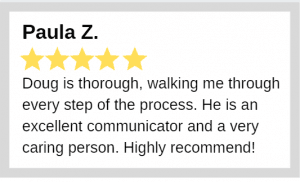experienced probate attorneyWhen a person dies, everything they owned may need to go through the probate process. If you’re searching for information and advice on how to contest a probate case, then you’ve come to the right place.
In today’s post, we’ll give you some helpful insight into the matter.
Can a Will Be Challenged?
If the deceased left a last will and testament and you feel like you have solid reasons to contest it, then you are free to do so. Challenging a will is not uncommon. And several motivations may drive someone to do it.
 First and foremost, you will need to understand the process of how to contest a probate case. You can research this information on your own. However, ultimately, you will most likely need the expert guidance of probate lawyers.
First and foremost, you will need to understand the process of how to contest a probate case. You can research this information on your own. However, ultimately, you will most likely need the expert guidance of probate lawyers.
If you are listed as the beneficiary or executor of a deceased person’s estate or you’re anticipating that your own will may be challenged long after you’ve passed, you will need the backing of an experienced probate attorney.
How Do You Contest a Will?
Simply put, contesting or challenging a will means you are formally objecting to the contents of it and the will’s validity as a whole.
 Any interested party (or parties) has the right to contest a will. An interested party, in this case, means any person or persons who could gain or lose once the will has been conclusively proven as unenforceable.
Any interested party (or parties) has the right to contest a will. An interested party, in this case, means any person or persons who could gain or lose once the will has been conclusively proven as unenforceable.
Generally, interested parties contesting a will are the people who may have been left out of the will. These people include: children, spouses, grandchildren, siblings, business partners, other relatives, guardians of minors since the latter are not allowed to contest a will due to their age, or anyone else named as your beneficiary (close, personal friends, charitable organizations, etc.)
How to Contest a Probate Case: General Steps
Do the Research

Before you can contest a probate case, you have to make sure you have grounds to do so. The laws may vary for every state, so review the requirements in your jurisdiction for contesting wills. Once you’ve done your research, confirm that your motivation for contesting the will falls under your state’s probate law.
You will also need to know how long you’ve got until someone’s passing that you have to contest the validity of their will.
Another vital thing to note is to check for no-contest clauses in the will. These clauses can completely halt will contests altogether. Consult with a probate lawyer to know more about no-contest provisions.
Submit the Petition
The next step is to file your petition with your local probate court. This is your formal way of challenging the will in court. While you could do this on your own, you may want to employ the services of a probate and estate planning lawyer. This is especially helpful if other interested parties are contesting the will and/or if there’s a substantial amount of estate involved.
Collect Evidence
After submitting your petition, the probate court will assign a hearing date for your case. As you wait for the hearing date, work on collecting any and all evidence to back up your petition. The nature of the evidence you will need largely depends on your reasons for challenging the validity of the will.

For instance, you’re challenging your deceased parent’s will because you believe that your other sibling negatively influenced them to leave you out of it.
Obviously, you will need evidence to support your case. Either you will need to establish a timeline of financial abuse of your deceased parent’s funds or solid proof that the will was made under duress.
Strengthening your claim also goes past gathering documentation. You will also need to find reliable witnesses to support your case. Whether it’s a neighbor or a healthcare professional, make sure your witnesses have direct involvement in the case.
The validity of your evidence directly affects the legitimacy of your claim. Additionally, while you’re in the process of contesting a probate case, make sure to always appear on schedule during your hearing dates.
Final Words
The steps on how to contest a probate case may be time-consuming and emotionally taxing. Before you take on this journey, ask yourself if it’s worth your time and resources. If it is, make sure you have a professional and experienced probate attorney to back you up.
